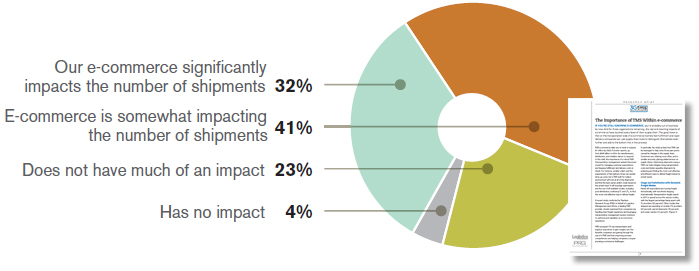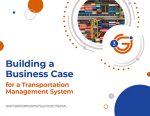The Importance of TMS within Ecommerce
Ecommerce is not just a B2C phenomenon anymore: the B2B organizations are starting to demand the same type of visibility and logistics services that individuals receive in their personal lives.
If you're still ignoring ecommerce, you’re probably out of business by now.
And for those organizations remaining, the real and resulting impacts of e-commerce have touched every facet of their supply chain.
The good news is that on the transportation side of ecommerce - namely fast fulfillment and rapid delivery - companies can use supply chain tools to distinguish themselves even further and add to the bottom line in the process.
B2B e-commerce sales are on track to surpass $1 trillion by 2020, Forrester reports, up from $305 billion in 2014.
As manufacturers, distributors, and retailers clamor to respond to this shift, the importance of a robust TMS (transportation management system) becomes crucial for managing customer expectations and keeping fulfillment and delivery costs in check.
For instance, smaller orders and the expectations of fast delivery times can quickly drive up costs; but a TMS built for today’s environment will look at all of the shipments and find the best carrier and/or mode based on the actual need.
It will leverage optimization and the use of all available modes, including pool distribution, multi-stop TL, and LTL, to find the most cost-effective way to deliver freight.
A recent study conducted by Peerless Research Group (PRG) on behalf of Logistics Management and 3Gtms, a leading TMS provider, closely examined how companies are handling their freight operations and leveraging transportation management system solutions to optimize - and capitalize on - ecommerce operations.
Extent to which e-commerce is affecting an increase in 2017 shipments

PRG surveyed 173 top transportation and logistics executives to gain insights into the benefits companies are gaining through the use of a TMS and how improving process competencies are helping companies conquer pressing e-commerce challenges.
In particular, the study probes how TMS can be leveraged to help solve those pain points caused by changes in the supply chain.
Customers are ordering more often, and in smaller amounts, placing added tension on supply chains.
Optimizing shipments using a TMS can help mitigate rising transportation costs and better expedite shipments by analyzing and finding the most cost-effective and efficient ways to deliver freight based on actual needs.
What’s Related




Favorites





